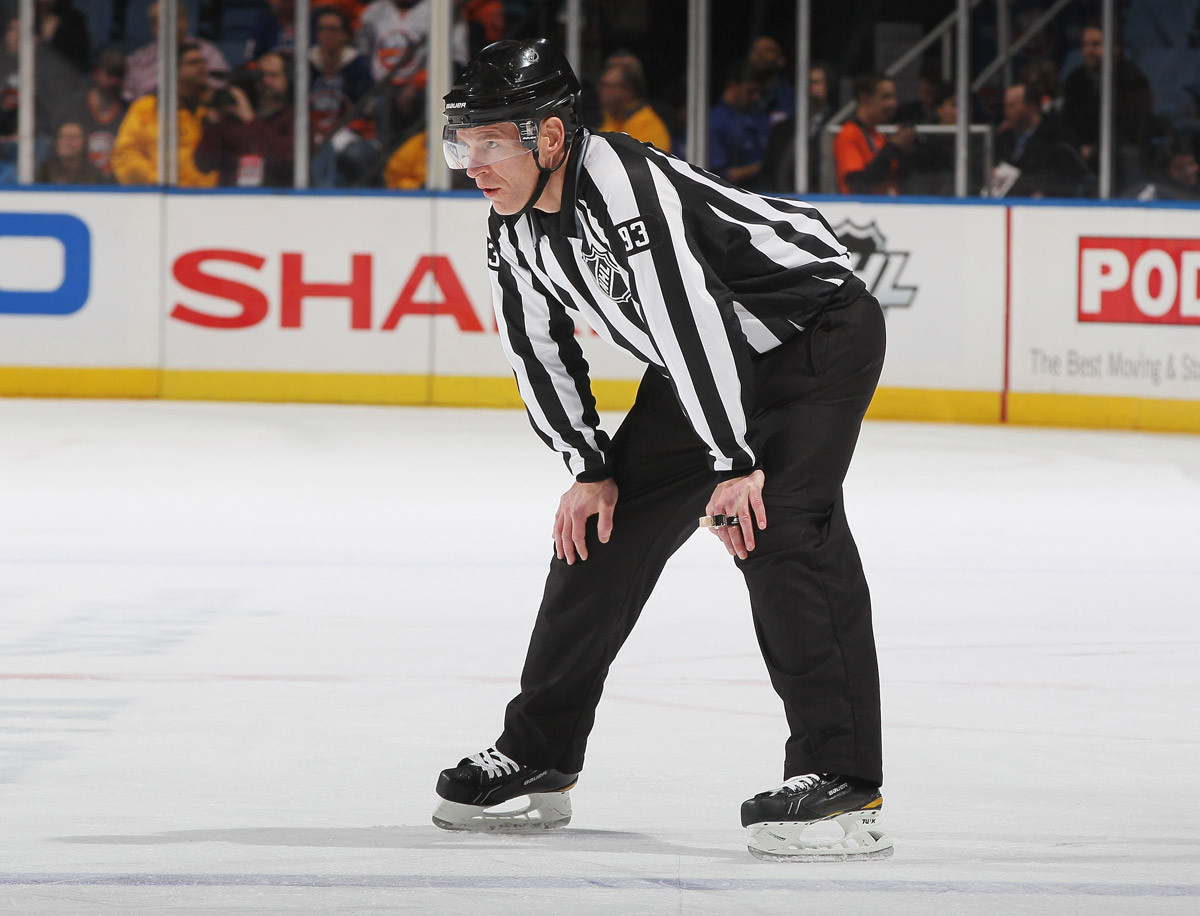
rian “Murph” Murphy ’86 grew up in Dover, New Hampshire’s hockey ecosystem, where everything from family stick-and-puck sessions and school competitions to weekend nights at UNH watching the Wildcats take on the nation’s best collegiate teams and the Big Show — the Boston Bruins — are connected.
For a kid ensconced in the life, the Stanley Cup Finals were something special. “My parents always let my brother Mike and I stay up, no matter how late, to watch the official presentation of the cup on T.V.,” recalls Murphy. “There was nothing like it in all of sports . . . the way the guys lined up to shake hands just moments after going so hard at each other for so long.”
Murphy played at Dover High under coach Dan Raposa ’83, ’87G. At UNH, he didn’t try out for hockey, but he stayed in the sport by playing in pick-up games and working the Zamboni at Dover Ice Arena. It was at the arena that he got his “this-should-be-my-life!” calling. “I was cleaning the ice between games. Afterward, I asked one of the refs how much he got paid. When he told me, I thought, “Hmmm, this just might work!” When Raposa, who became an NCAA hockey official himself, strongly encouraged Murphy’s interests, his future course was set.
Murphy says the only thing standing in his way was “getting off the couch” to go to the U.S.A. Hockey officiating clinic. But he got up, worked his way through the ranks of college officialdom and, in 1988, got the call from the NHL.
There he worked for 32 years, officiating about 74 regular season games a year and racking up some 4,400 hotel nights, “or about 12 years of my life,” says Murphy. That’s a grind, no matter how much you love your job or the sport.
When he retires at the end of the 2019-20 NHL season, he will have officiated more than 2,000 NHL games and more than 300 playoff games including nine Stanley Cup finals. The NHL assigns officials to playoff games based on their regular season performance, which is closely evaluated by the league. Given his record of playoff appearances, Murphy would have to be considered among the best, or simply the best American hockey official ever to don the zebra shirt and whistle. (Only one in nine NHL officials are U.S. born.) Murphy’s personal “trophy case” boasts the Vancouver Olympics in 2010, two Hockey World Cups, the 1988 NCAA Men’s Division 1 Championship and the nine Stanley Cups. “But the Stanley Cup beats them all,” says Murphy.
Murphy has the hockey guy’s gift for laidback understatement, but there’s nothing low key about his passion for, and knowledge of, his profession.
“There was no better feeling for me as an official than skating off after the game and knowing I did a good job, which meant nobody was talking about the calls I made, but rather about the great performances of great athletes.” Technically, Murphy says officiating involves slowing the game down in his mind and constantly getting himself in position to have the clearest sight line to the action. The concentration required is epic. “It was like being in a fishbowl, with everything outside the bowl completely tuned out,” he says.
The other skill wasn’t technical but psychological. “To be an effective official, you have to accept you’re going to make mistakes,” says Murphy. “Own them but realize everybody makes mistakes, and officials are in positions to make even more.”
Murphy isn’t entirely finished with hockey. Aside from officiating, he has worked with U.S.A. Hockey to develop the next generation of officials, and starting this fall, he’ll become Hockey East’s Supervisor of Officials — a fitting next move for the ref who received U.S.A. Hockey’s top honor, the Distinguished Achievement Award, in 2019. He also runs a hockey clinic with ex-Bruin and current Harvard University coach Ted Donato. Instant replay and increasingly vocal parents and fans have made refereeing less attractive, so a good ref is becoming harder and harder to find. Murphy wants to use his example to inspire up-and-coming “Murphs” out there.
He just has to get them off the couch.